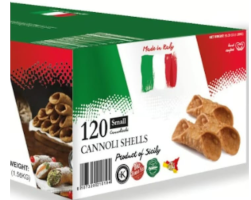Kashrut.com, a website dedicated to keeping the kosher customer informed, is cautioning its followers about fraudulent symbols falsely claiming to indicate kosher certification, particularly from India and China. Arlene Mathes-Scharf, a food scientist and publisher of the site, has released a warning and images of eight symbols to watch out for. While most are generic logos, one closely resembles the legitimate Kof-K, a kosher certifier based in Teaneck, NJ. It’s essential to know these fraudulent symbols when seeking kosher products.
According to the website, certain companies in Asia, particularly India, offer “certification” services with fake kosher symbols. These symbols have no recognized rabbinical certification behind them. It is important to never rely solely on a character but to verify that it is from a reliable agency.
The Orthodox Union kosher division did not give their thoughts on other organizations’ kosher symbols. Kof-K did not reply to a query from JNS, even though their symbol appeared to have been forged.
Rabbi Sholom Tendler oversees multiple facilities and conducts kosher-organic inspections for Star-K, a prominent Baltimore-based kosher certifier. According to him, there are two troubling matters to consider.
According to a statement made to JNS, unauthorized use of Star-K’s trademark symbol is not uncommon. However, there has been no significant increase in these incidents.
According to Tendler, using fake symbols claiming to be kosher is common. These symbols are difficult to regulate, primarily when they originate from foreign countries. Tendler emphasizes the prevalence of this type of fraud in the industry.
For those who keep kosher, it’s crucial to identify reliable kosher symbols. I highly recommend taking the time to learn and recognize them. This will ensure that the products you purchase and consume align with your dietary restrictions and beliefs. Trustworthy kosher symbols can give you peace of mind and confidence in your food choices.
Reporting suspicious products by following the “see something, say something” rule is essential. If a product appears unusual or the certification symbol is not typical, contact the agency associated with the symbol. It is crucial to verify that the product is genuinely certified.
KCI Kosher, a well-known label in the Kashrut.com list, failed to respond to a query from JNS. On its website, the brand defines the meaning of “rabbi” instead of disclosing its rabbinic supervisor or administrator.
We urge you to check your food packages to ensure your products have a genuine, reliable kosher certificate.
An example below of a fraudulent kosher symbol on a product currently sold at Restaurant Depot and Amazon.


Responses